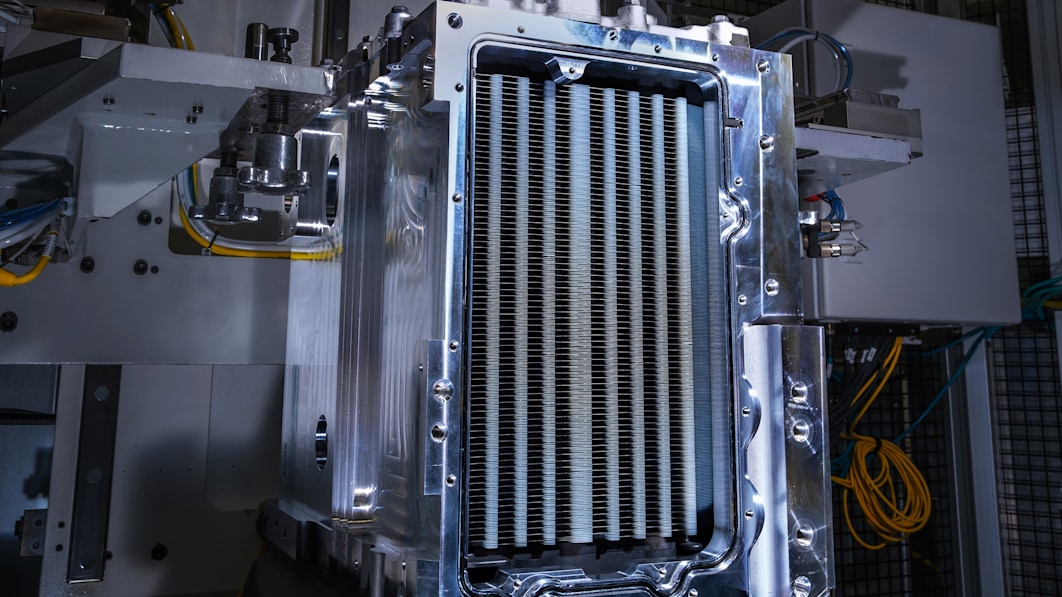GM is entering both the train and aircraft worlds with its Ultium battery and hydrogen fuel cell technology. This week, GM announced it would partner with Wabtec locomotives for trains and Liebherr-Aerospace for aircraft.
To be more specific, GM plans to partner with Wabtec to develop and commercialize its Ultium battery technology and “Hydrotec” fuel cell systems for use on trains. Details are scarce at the moment, but Wabtec says the “FLXdrive locomotive” concept has shown that a train running 100% on batteries has the potential to work. This train that Wabtec is testing now has a potential energy storage of 2.4 mWh, good for about 350 miles. Taking all factors into consideration, Wabtec said it was able to reduce greenhouse gas emissions by 11% compared to a traditional train at this distance. However, it estimates that with 6 mWh of juice, that could yield a 30% reduction.
This is where GM steps in with its Ultium battery technology and Hydrotec fuel cell power cubes, which it says can be easily packed into trains.
“Rail networks are critical to transportation and to GM’s ability to serve our customers across North America, and Wabtec’s bold plan to decarbonise heavy haulage and other locomotive applications is helping our vision of a world promote zero accidents, zero emissions and no congestion,” said Mark Reuss, GM chairman.
We will also note that GM is working closely with Honda through its current relationship on the hydrogen fuel cell aspect of this project. Which leads us to the airplane part of this news. Liebherr-Aerospace wants to explore the possibility of replacing traditional aircraft jet engines with fuel cell systems. The pair will build a demonstrator that will be tested in a lab setting. This test unit will use GM’s fuel cells that it co-developed with Honda.
“Airplanes are a great litmus test for the power and versatility of our Hydrotec fuel cells,” said Charlie Freese, General Manager of Global Hydrotec. “Our technology can meet the needs of customers in a wide variety of applications – on land, sea, air or rail, and this partnership with Liebherr could open up new possibilities for aircraft transitioning to alternative energy sources.”
In the end, we were able to see lower emissions and less noise than the planes flying through our skies today emit. Of course, it takes a long time for aircraft developments to be tested and go into production for obvious safety reasons, so it may be some time before we see commercial hydrogen-powered aircraft take to the skies. That said, it’s promising to see industries come up with and develop cleaner technologies for all of our different modes of transportation.
Related video:
